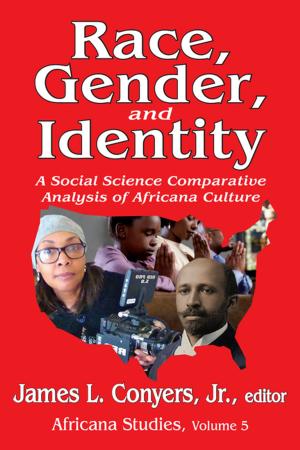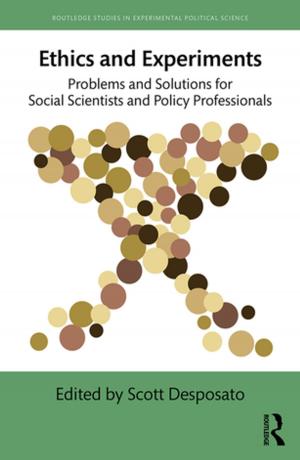Theories of Sustainable Development
Business & Finance, Economics, Sustainable Development, Nonfiction, Social & Cultural Studies, Political Science, Government, Public Policy| Author: | ISBN: | 9781317634621 | |
| Publisher: | Taylor and Francis | Publication: | October 24, 2014 |
| Imprint: | Routledge | Language: | English |
| Author: | |
| ISBN: | 9781317634621 |
| Publisher: | Taylor and Francis |
| Publication: | October 24, 2014 |
| Imprint: | Routledge |
| Language: | English |
While sustainability has become a buzzword in discussions about the environment and development, work on theories of sustainable development has received much less attention. However, theory is vital as understanding the origins and development of the concept is the key to achieving successful implementation of sustainability.
This book offers an interdisciplinary collection of research articles on the theories of sustainable development, drawing on a wide range of subjects including history, politics, governance, complex systems, economics and philosophy. It advocates viewing sustainable development not only as the establishment of a permanent, globally practicable and future-capable mode of life and economics, but as a complex array of problems involving a wide range of social-scientific and humanistic disciplines. This innovative approach means that the book is oriented toward current problems, not toward the established academic boundaries, and it draws out lessons that are relevant for those studying and working in sustainability across the world.
This book will be of great interest to researchers and students of sustainable development and environmental politics, as well as practitioners working with sustainable development in politics, business, administration, and civil society organizations.
While sustainability has become a buzzword in discussions about the environment and development, work on theories of sustainable development has received much less attention. However, theory is vital as understanding the origins and development of the concept is the key to achieving successful implementation of sustainability.
This book offers an interdisciplinary collection of research articles on the theories of sustainable development, drawing on a wide range of subjects including history, politics, governance, complex systems, economics and philosophy. It advocates viewing sustainable development not only as the establishment of a permanent, globally practicable and future-capable mode of life and economics, but as a complex array of problems involving a wide range of social-scientific and humanistic disciplines. This innovative approach means that the book is oriented toward current problems, not toward the established academic boundaries, and it draws out lessons that are relevant for those studying and working in sustainability across the world.
This book will be of great interest to researchers and students of sustainable development and environmental politics, as well as practitioners working with sustainable development in politics, business, administration, and civil society organizations.















